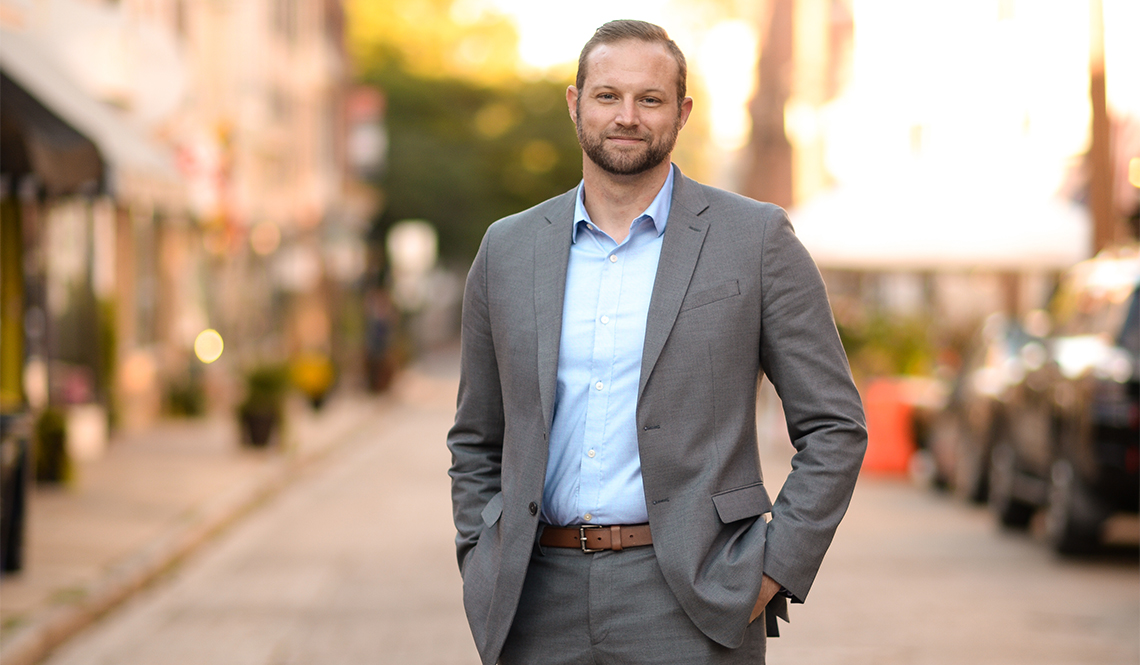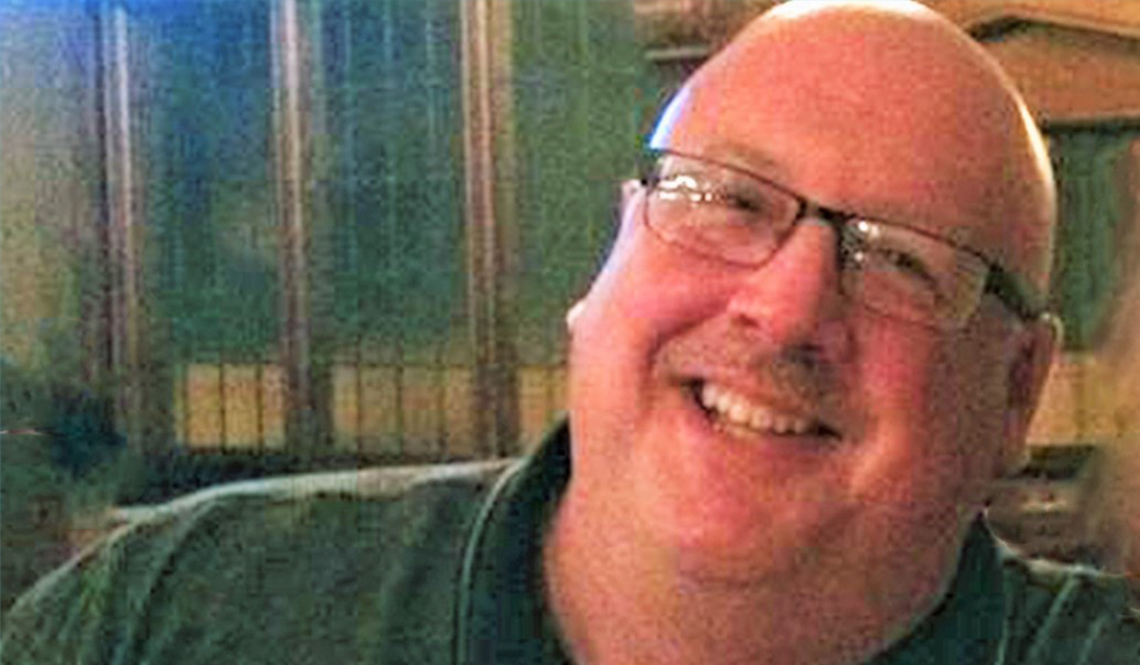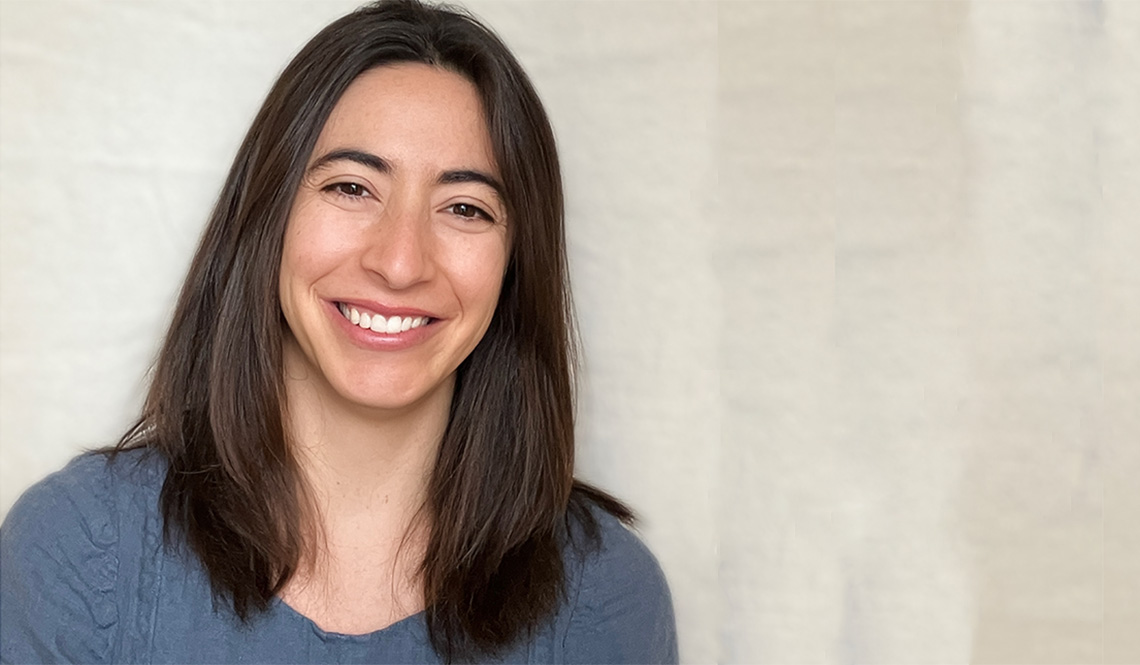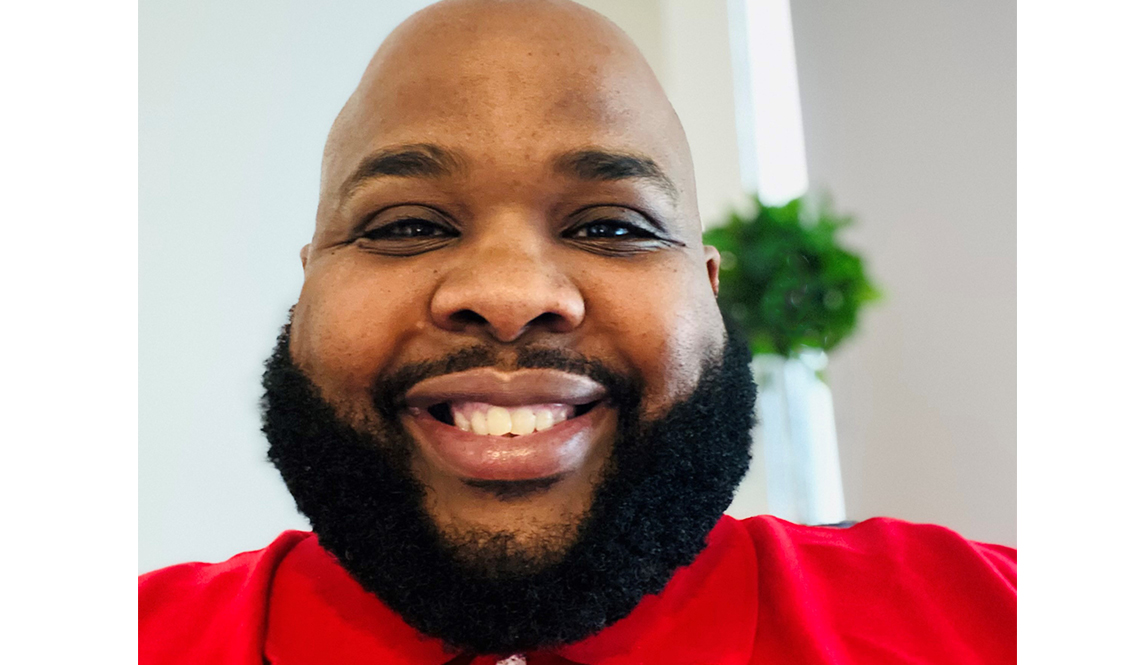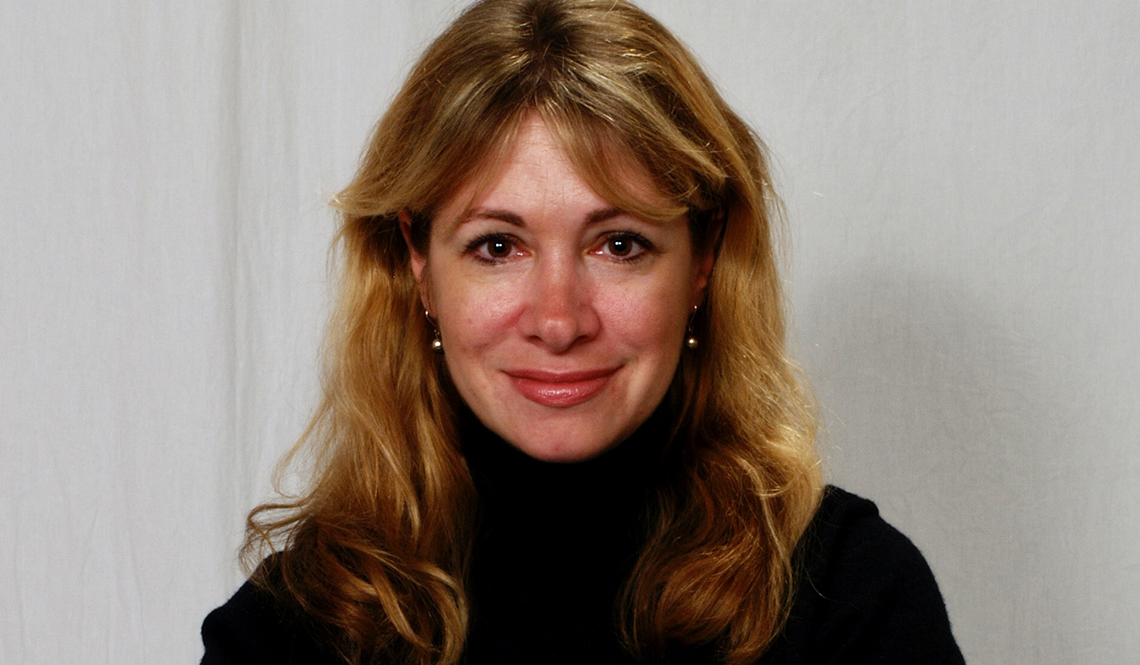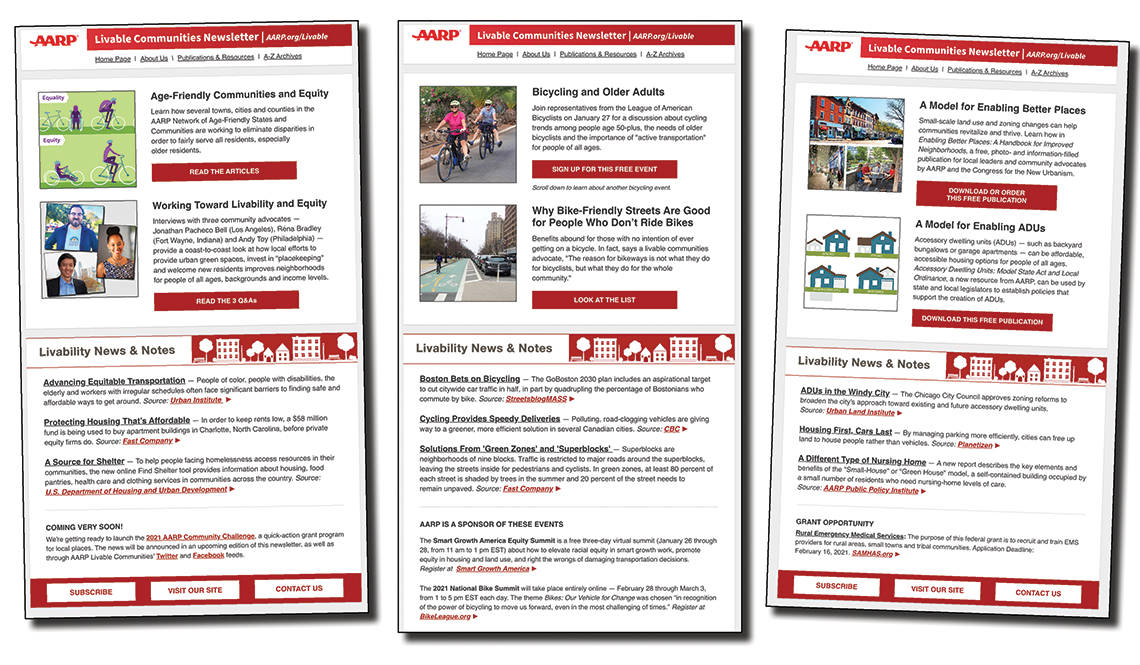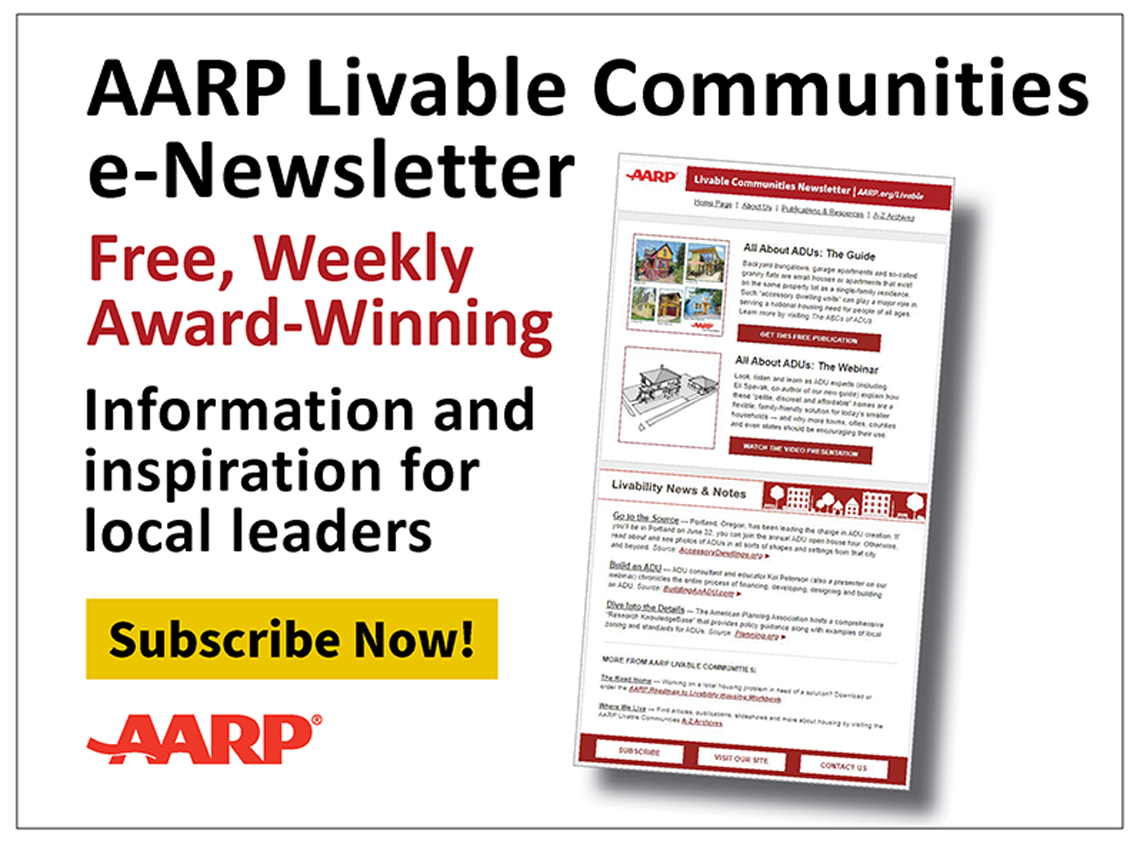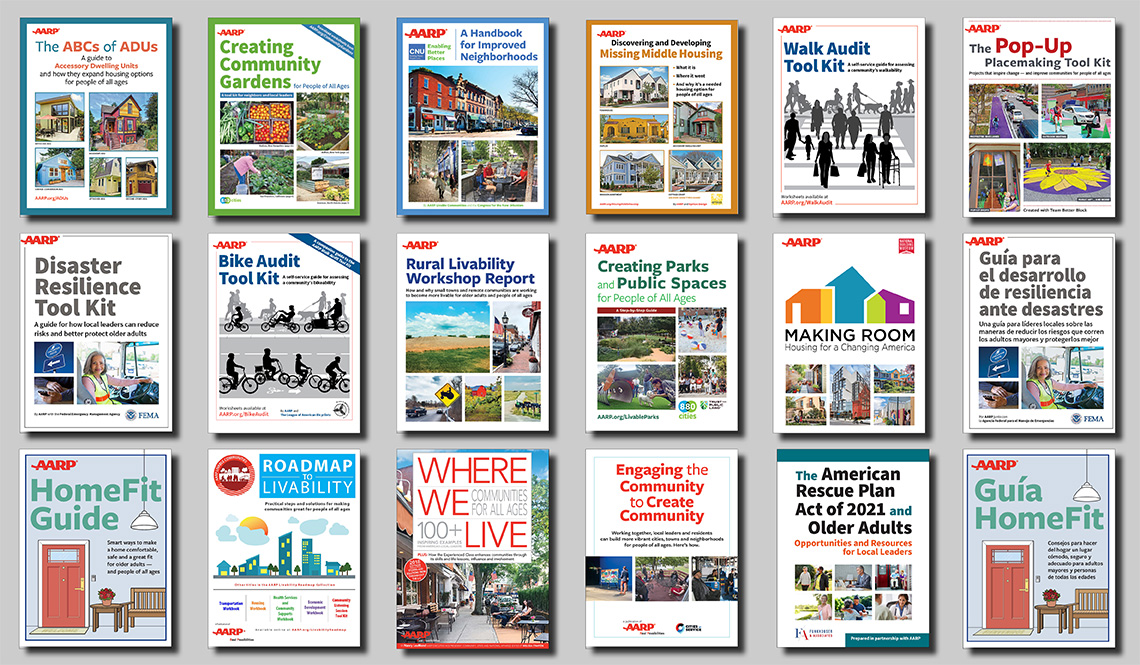AARP Livable Communities Team
Working nationally and locally to foster livable places for people of all ages
AARP's livability work is led by the AARP Livable Communities team in the Programs Department of AARP Community, State and National Affairs. The team members listed below work closely with the staff and volunteers in AARP State offices as well as with livability consultants and experts specializing in public policy, government affairs, research and international relations. (See the "Our Teams" section of our About page.)
Mike Watson, Director
As the director of AARP Livable Communities, Mike Watson works closely with AARP’s 53 state offices, volunteers and key stakeholders to encourage towns, counties and cities to be more livable for people of all ages. He leads a team that's responsible for supporting the AARP Network of Age-Friendly States and Communities; delivering direct technical assistance to communities; publishing free resources and the AARP Livable Communities weekly e-newsletter; equipping mayors and local officials with tools and resources; and delivering livability grants to communities nationwide through the AARP Community Challenge program.
Previously, Mike helped advance AARP’s livability work by leading the AARP Community Challenge and the association's national mayoral engagement effort. Mike also served as an advisor to AARP's chief advocacy and engagement officer, providing strategic advice and expertise on retirement policy, family caregiving and livable communities.
Before joining AARP in 2011, Mike served as a lobbyist on Capitol Hill for an advocacy organization focused on issues affecting older adults. He holds a bachelor's degree in history with a minor in legal studies from Wingate University, a master's in public policy (focused on social policy) from the University of Maryland School of Public Policy and a professional certificate in municipal finance from the University of Chicago Harris School of Public Policy. An avid runner, cyclist and outdoor enthusiast, Mike is passionate about helping communities become places where people of all ages can thrive.
Bill Armbruster, Senior Advisor
Bill Armbruster manages the AARP Network of Age-Friendly States and Communities, which is a program within AARP Livable Communities.
He has been with AARP since 2000, joining as an associate state director for AARP New York. In that role he served the upstate and western region of the Empire State and was responsible for the development, implementation and assessment for community outreach programming. That body of work included livable and age-friendly communities initiatives, partner development and grassroots volunteer organizing for a 30-county region both near and far from his Rochester home base.
Since 2016, Bill has been traveling frequently and far to communities, conferences and meetings nationwide as a speaker and facilitator for the AARP Livable Communities initative. In addition to his work at AARP, Bill has extensive experience in corporate wellness programs, occupational rehabilitation and ergonomics, pain treatment and physical therapy.
Rebecca Delphia, Senior Advisor
Rebecca Delphia leads AARP Livable Communities' local change programs, which support community leaders in their efforts to advance livability. This suite of programs includes nationwide technical assistance, trainings and funding to communities through the AARP Community Challenge grant program.
Rebecca joined AARP Livable Communities after serving as an associate state director for community outreach with AARP Pennsylvania. Prior to working for AARP, Rebecca held an appointment as the first-ever chief service officer in the Pittsburgh Mayor's Office.
Rebecca holds a bachelor's degree and master's of social work degree from New York University's Silver School of Social Work, where she was a scholar in the Catherine B. Reynolds Program in Social Entrepreneurship. Rebecca and her family are proud to call Pittsburgh their home.
Mandla Moyo, Senior Advisor
Mandla Moyo drives AARP Livable Communities' diversity and inclusion strategy. Previously, Mandla was on the AARP Indiana team, which he joined in 2011 as the associate state director of community engagement. Mandla has worked in multicultural communities in Indiana to build strong ties to strategic community organizations, local elected officials and partners in support of livability policies and community change.
Prior to joining AARP, Mandla served as a community relations coordinator at Kid One, a nonprofit organization that provides free medical transportation to children and expectant mothers in Birmingham, Alabama, and a program associate at the Birmingham chapter of the American Diabetes Association.
Mandla holds a bachelor's degree in political science from Jackson State University and a master’s in public administration from Strayer University. Mandla and his family call Indianapolis home.
Melissa Stanton, Senior Advisor/Editor
Melissa Stanton leads AARP Livable Communities' award-winning communications platforms. She is the editor of AARP.org/Livable (the website you’re on right now), the AARP Livable Communities e-Newsletter and the growing collection of print resources and publications that make up the AARP Livable Communities Library.
Prior to joining AARP in 2010, Melissa spent more than a decade at Time Inc., where she began as a reporter, became a senior editor at LIFE and People magazines, and served as the editor-in-chief of various books and special issues. Melissa’s freelance articles have been published by The New York Times, The Atlantic, Glamour and other media outlets. She's also the author of two books (one for kids, the other for moms).
A native New Yorker, Melissa is a graduate of Fordham University, where she earned a bachelor's degree as a history major with a minor in communications, and the City University of New York/Hunter College, from which she earned a master's degree in public health with concentrations in women's health and community health education. As a community volunteer, Melissa has been active in advocacy efforts related to transportation, land use, health and education. She is based out of the AARP national office in Washington, D.C.
Page updated November2023
Learn More
Find information about the programs and work mentioned in the biographies above:
Stay Informed — For Free!
AARP.org/Livable
Enter a topic, name, place, etc.

